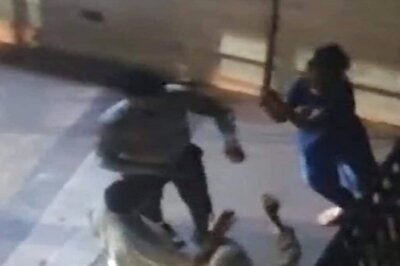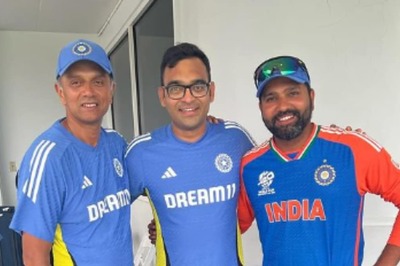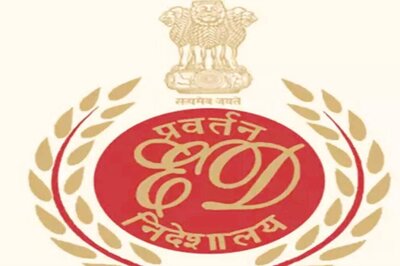
views
Kolkata: As world remembered legendary Actor Utpal Dutt on Monday on his 26th death anniversary, his daughter Bishnupriya Dutta said that her father believed in ‘equitable distribution’ and ‘democracy’.
Utpal Dutt played the role of a tyrant king of ‘Hirak’ (Land of Diamonds) in Satyajit Ray’s ‘Hirak Rajar Deshe’ (in the land of the Diamond King) – where his ministers worked as puppets. Whoever protested against the King of ‘Hirak’, they were brainwashed through a machine at a chamber called ‘Jantarmantar’.
The movie won many awards including National Film Award for Best Feature Film in Bengali in 1980. In real life, Utpal Dutt used to believe in people’s right, equality and democracy.
Utpal Dutt’s daughter Bishnupriya Dutta who is a Professor at School of Arts & Aesthetics at JNU, said, ‘Whatever happening around us is very unfortunate. If he (Utpal) would have been alive, he would have revolted (through theater) the way Hindutva and neoliberalism is frustrating us. I really miss him today.” She added that Utpal would have definitely question those who are destroying our democracy in the name of Hindutva, neoliberalism and fascism.
Utpal Dutt was born on March 29, 1929 in Borisal (now in Bangladesh). He was an actor and director known for evergreen blockbuster like 'Gol Maal' (1979), 'Rang Birangi' (1983), 'Bhuvan Shome' (1969), 'Baisakhi Megh' (1981) and 'Shaukeen' (1981). He died on August 19, 1993 in Kolkata.
Uptal Dutt was also jailed for revolutionary theater in Bengal. In 1965, he was detained for several months because then the Congress government felt that his play ‘Kallol’ - Sound of Waves (which was based on the Royal Indian Navy Mutiny of 1946) might led to anti-government protests in Bengal.
Bishnupriya Dutta talking about the current scenario in the country said, “He (Utpal Dutt) believe in equality, good governance, jobs, etc and this is exactly he portrayed in most of his theater. I work at JNU and it’s like we are living in a ‘fascist atmosphere’. Not only in India, this issue is there all over the world and it is very unfortunate. Today, I really miss by baba (father).” She added that he created an atmosphere of women empowerment at her house.
In 1968, his play ‘Manusher Adhikare’ (People’s Rights) was also criticized by the government functionaries.
In 1970s, three of his plays including ‘Dusswapner Nogori’ (City of Nightmares), 'Ebaar Rajar Pala' (Now it is the King’s turn) and ‘Barricade’ was officially banned.
Dutta was a revolutionary and he never compromised with his ideology. In 1964, while in Jail he wrote ‘Loha Manab’ (Iron Man). It was based on the real trial against a pro-Stalin, ex-Politburo member by supporters of Nikita Khrushchev in Moscow of 1963.
Bishnupriya Dutta said, “I would like to stress that instead of becoming sad my father would have actually fought against this Hindutva and neoliberalism through theater. Unfortunately, he is no more but his work and personality is not going to die ever.”
His play ‘Janatar Aphim’ (Opiate of the People criticized Indian political parties for exploiting religion for their gain.
“My father never bowed down before anyone when it comes to compromising with his vision, values, and ideology,” said Bishnupriya Dutta.















Comments
0 comment